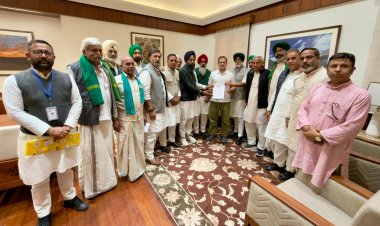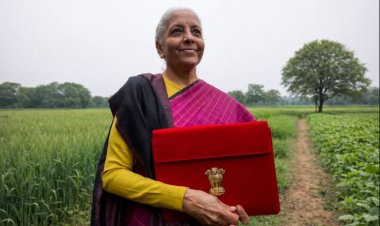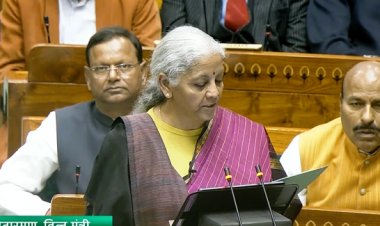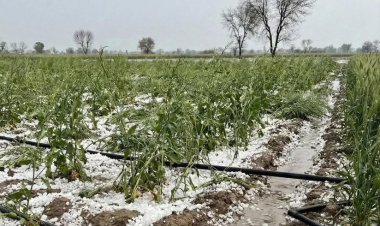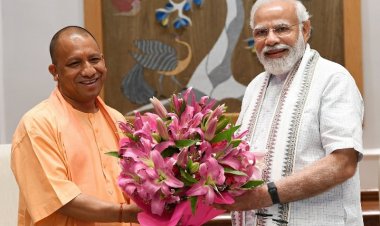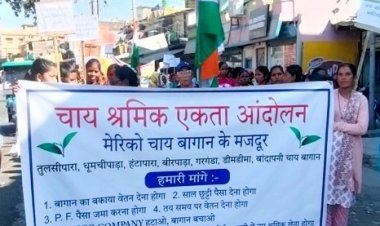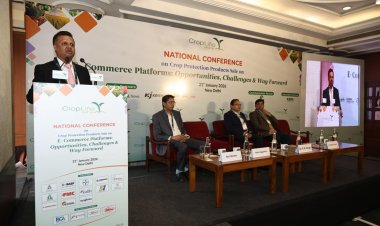Panel set up to restructure 94-year-old ICAR, prune its size
The central government wants to restructure the Indian Council of Agricultural Research (ICAR), as well as to reduce its size. The government has constituted a committee to carry out this work. Additional Secretary, Department of Agricultural Research and Education (DARE) and Secretary ICAR has been made the chairman of the committee.
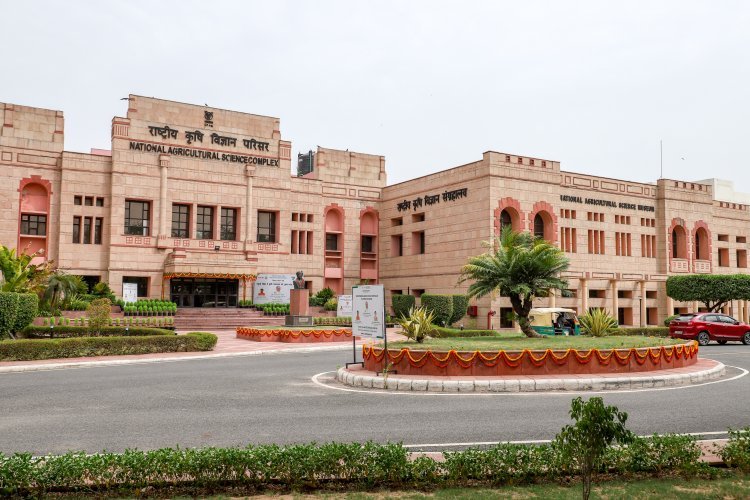
The central government wants to restructure the Indian Council of Agricultural Research (ICAR), as well as to reduce its size. The government has constituted a committee to carry out this work. Additional Secretary, Department of Agricultural Research and Education (DARE) and Secretary ICAR has been made the chairman of the committee.
In the 11-member committee, six members are administrative officers who are of the level of Joint Secretary and Additional Secretary. Office order has been issued for the committee on April 24, 2023, and it has to submit its report within 30 days.
Interestingly, the Terms of Reference (ToR) of the committee is stated in just one sentence. It mentions that the committee has to make recommendations for rationalising and right-sizing the 94-year-old ICAR so as to transform it into a dynamic, lean and efficient organisation.
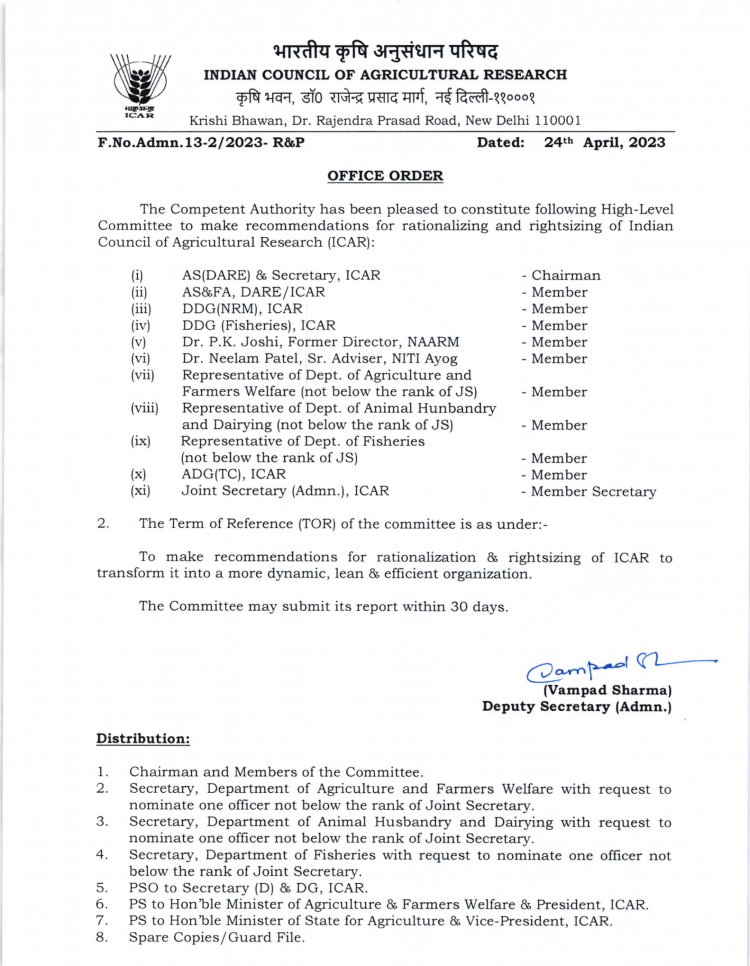
Other members of the committee will be Financial Adviser to ICAR, DDG (NRM) of ICAR, DDG (Fisheries), Department of Agriculture and Farmers Welfare, Department of Animal Husbandry and Dairying and Department of Fisheries will be represented by an officer of Joint Secretary from each department.
Senior Adviser of NITI Aayog Dr. Neelam Patel and Agricultural Economist Dr P.K. Joshi is also a member of the committee. Besides, ADG (TC) of ICAR is its member. Joint Secretary (Administration) of ICAR has been made the Member Secretary of the Committee. ICAR was formed on July 16, 1929. Then its name was Imperial Council of Agricultural Research. At present there are 111 institutes and 71 agricultural universities under it. It is counted among the largest national agricultural systems in the world.
Read This Also: Punjab, Haryana save govt: procurement of wheat to cross 250 LT averting crisis
On the constitution of this committee, a senior agricultural scientist said in a conversation with Rural Voice, it is not that the committee has been constituted for the first time to reorganise ICAR, but it is the first time that it is headed by an Additional Secretary level officer. The committee has been formed. Earlier committees were constituted for this purpose under the chairmanship of Dr R A Mashelkar, Dr M S Swaminathan.
About two years ago, the Dr Ramasamy committee constituted by the present government had also given its recommendations. Since no action was taken on the reports of the previous committees, a new committee has been constituted. It would have been better if the government had implemented the recommendations of the old committees or constituted a committee under the chairmanship of an eminent scientist.
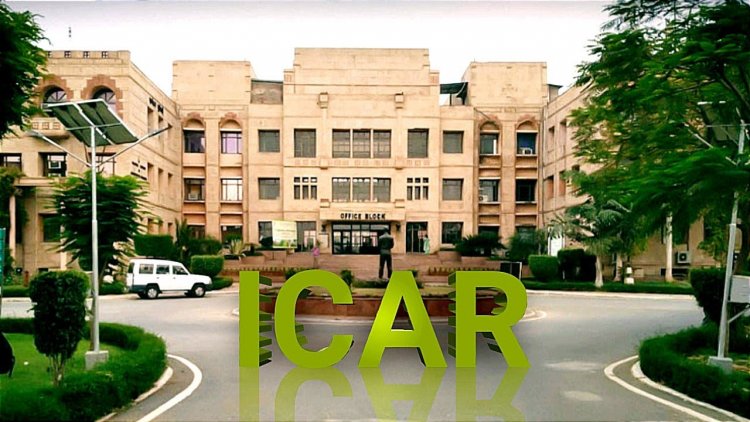
ICAR is one of the most prestigious agricultural research institutions in the world. There is no logic in giving the responsibility of reorganising it to the administrative officers.
It is also interesting to note that an Additional Secretary level officer, working under the Director General (DG) ICAR and Secretary (DARE), has been made the chairman of the committee to recommend restructuring of the institution.
Member economist Dr P.K. Joshi was also a member of the committee formed by the Supreme Court during the farmers' agitation against the three agricultural laws. Apart from this, he has also been the Asia Pacific Director of the International Food Policy Research Institute (IFPRI).
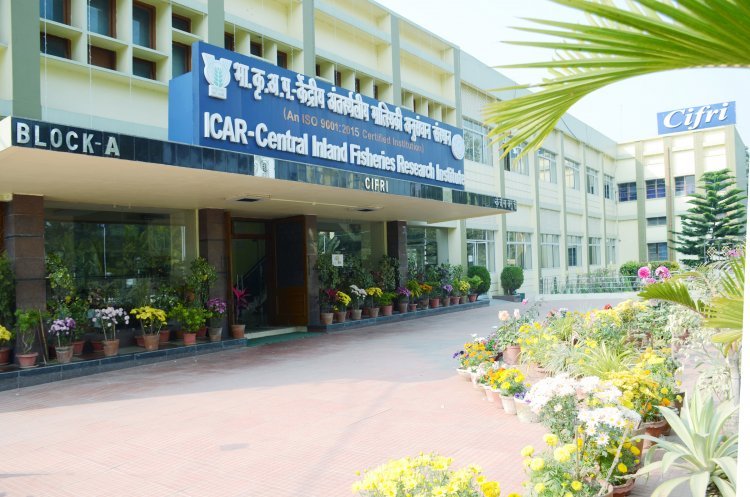 Another senior agricultural scientist says that India is a country with multiple agro climatic zones. There are institutes for research on various crops. It is through them that we have got success from green revolution to horticulture, fisheries and dairy. If the institutes of ICAR are to be closed or merged, it will not be beneficial for the agriculture sector of the country. At the same time, there has been no effective increase in the budgetary provision for ICAR for the last several years.
Another senior agricultural scientist says that India is a country with multiple agro climatic zones. There are institutes for research on various crops. It is through them that we have got success from green revolution to horticulture, fisheries and dairy. If the institutes of ICAR are to be closed or merged, it will not be beneficial for the agriculture sector of the country. At the same time, there has been no effective increase in the budgetary provision for ICAR for the last several years.
Agricultural scientists have been continuously insisting that one per cent of the country's agricultural GDP should be spent on research, whereas it is stuck between 0.3 to 0.4 percent. According to them, it is also not practical to ask the committee to give recommendations in just 30 days for restructuring such a huge institutional system.



 Join the RuralVoice whatsapp group
Join the RuralVoice whatsapp group

















